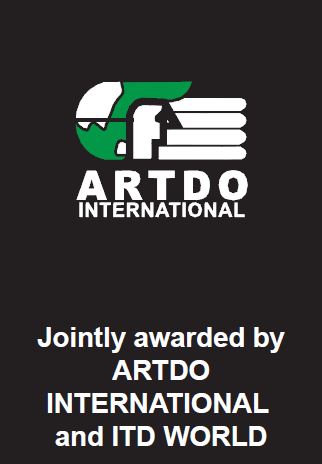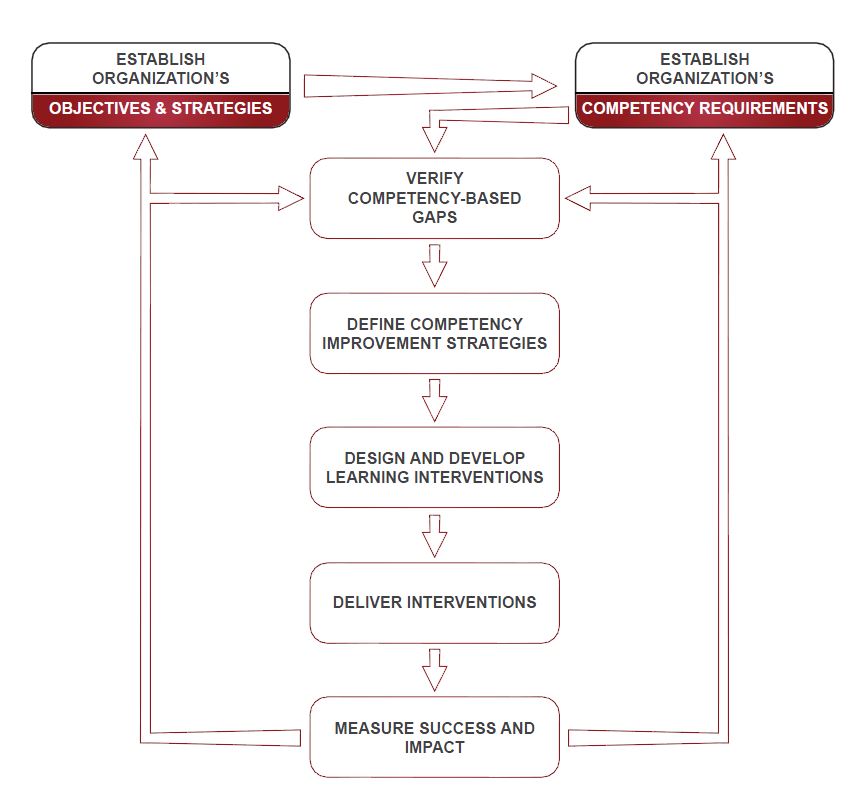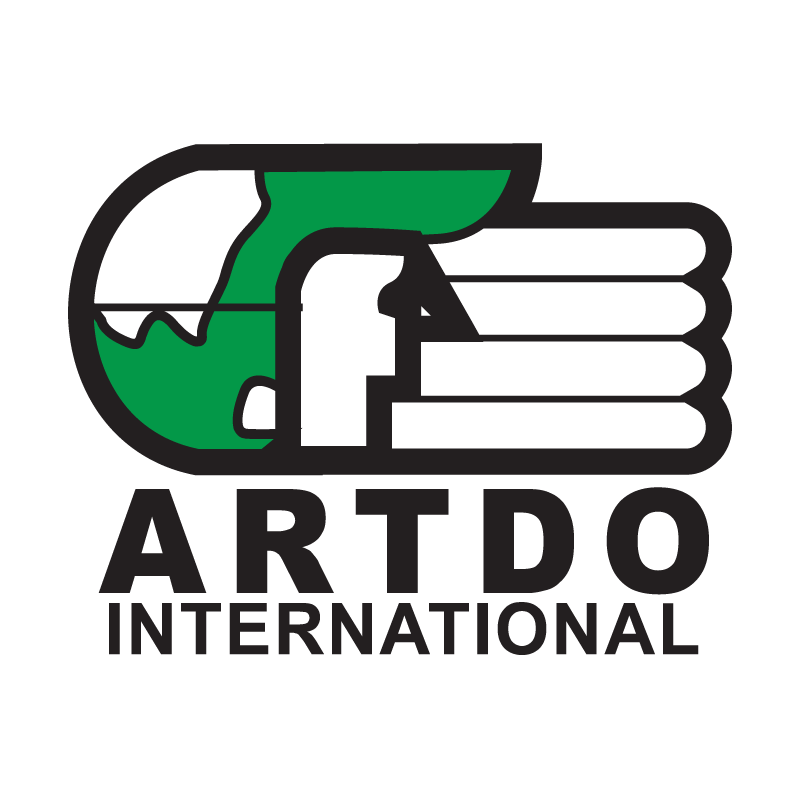
The Certified Training Professional designation recognizes individuals who complete the CTP Program. ARTDO International and all of its member organizations recognize that those individuals so designated possess the competencies expected of a training practitioner.
The Certified Training Professional (CTP) Program is offered by the ARTDO International in collaboration with the Institute of Training and Development (ITD). The award is given upon the satisfactory completion of a five-module competency-based skills development program which lasts for ten days and the submission of a set of required certification reports indicating the demonstration and application of the set of training competencies in an actual work-related setting within a ninety day post-training assessment period.
Participants are expected to satisfactorily perform the tasks of a training professional using the set of twenty training competencies specified by ARTDO International & ITD.
| MODULE 1 | ANALYSIS | 2 DAYS |
| MODULE 2 | DESIGN | 1.5 DAYS |
| MODULE 3 | DEVELOPMENT | 1.5 DAYS |
| MODULE 4 | IMPLEMENTATION | 3 DAYS |
| MODULE 5 | EVALUATION | 2 DAYS |
The training is wonderful and timely. I have learnt to look at RESULTS BASE. This will help improve my ability to deliver well.
Robert N. George
UN Mission – Liberia (UNMIL)

MODULE 1: ANALYSIS
Competency Focus
- Organizational Awareness
- Analyzing Performance Problems
- Determining Root Cause
- Intervention Selection
Purpose of the Module
- Provides a business-wide strategic perspective to training and development
- Introduces a training process framework as basic for analysis
- Adopt a systematic, measured approach to needs analysis
Module Objectives
- State performance gaps correctly
- Use theoretical tools to determine root causes
- Use four methods of collecting data
- Develop a needs analysis recommendation
Content
Day 1
Morning session
- Overview and introductions
- The Big Picture: Role of L and D in strategy
- Instruction to the Instructional System Design
Model
- The phases of Needs Analysis
Afternoon session - Problem Analysis
- Factors that influence performance
- Needs Analysis
- Verifying root cause
Day 2
Morning session
- Data collection methods
- Table research method
- Interviews and focus groups
- Surveys
- Observation method
Afternoon session
- Job analysis techniques
- Competency mapping
- Identifying competency gaps
- Preparing a training recommendation
MODULE 2:
DESIGNING LEARNING – 1.5 DAYS
Competency Focus
- Writing Instructional Objectives
- Job Analysis
- Adult learning theory
- Instructional Strategy
Purpose of the Module
- Provides a template of training design and
development - Explains the step-by-step procedure in training
design - Gives sufficient opportunity for participants to do
prototype design - Encourages creativity in design
- Demonstrate the necessary components of
learning outcomes - Distinguish between learner-centered and
trainer-centered considerations
Module Objectives
The participant are expected to gain competencies in:
- Job / task – based curriculum development
- Using a participative method of job analysis
- Using mind-mapping techniques in design
- Writing learning objectives that are always
measurable - Using design parameters
Content
Day 1
Morning session
- Summary of instructional learning – what works in adult learning
- The design process
- Writing performance goals and learning objectives
- Planning the assessment
Afternoon session
- Choosing the course format
- Design parameters and strategies
- Job Instruction design
Day 2
Morning session
- Topic sequencing
- Selecting instructional methods
- Preparing the design matrix
- Formative assessment of the design
MODULE 3:
DEVELOPMENT – 1.5 DAYS
Competency Focus
- Using development tools
- Creating lesson plans and course leader guides
- Preparing instructor-led course materials
- Creating learner-led course materials
Purpose of the Module
- Gain insight into the process of creating course
materials - Create lesson plans consistent with learning
theories and principles - Build active learning activities
- Develop instructions for learner-led courses
Module Objectives
The participants are expected to gain competencies in
- Establishing conditions that are appropriate for adult learners
- Observing the guidelines for session structures
- Develop the suite of instructional elements required for delivering a course
- Use tools for creating learner-led instruction such as e-learning and self-study
Content
Day 1
Afternoon session
- Robert Gagne’s Conditions for Learning and 9 Steps of Instruction
- Distinguishing facilitator-led and learner-led
instruction parameters - Facilitator-led course leader guides
Day 2
Morning session
- Working with Power Point to produce presentation slides
- Building a participant manual
- Inserting active learning activities
- Creating learner-led material
Afternoon session
- Introduction to e-learning development tools
- Recording videos on Power Point
- Introduction to web-enabled learning platforms
- Gamification for the milennial learner
MODULE 4:
DELIVERING LEARNING – 3 DAYS
Competency Focus
- Presentation skills
- Demonstration skills
- Facilitation skills
- Group management
Purpose of the Module
- Build confidence in delivering a training assignment
- Know how to create a conductive learning
environment - Achieve greater learner engagement
- Handle challenging situations
- Facilitate experiental and group learning activities
Module Objectives
The participant are expected to gain competencies in:
- Preparing for a training assignment
- Running icebreakers and expectation sharing
activities - Conducting an active presentation
- Demonstate a work skill
- Facilitate a structured experiental learning activity
Content
Day 1
Morning session
- Getting ready for training
- What factors influence learner engagement
- The session structures
- Conducting icebreakers and energizers
- Conducting an expectation sharing activity
Afternoon session
- Presentation techniques using Power Point
- Body language and non-verbal messages
Day 2
Morning session
- How is facilitation different from other training skills?
- Process observation skills
- Feedback skills
- Workshop on process observation and feedback
Afternoon session
- Facilitating group activities
- Facilitating role plays
- Facilitating case studies
- Learning summaries and “re-entry”
Day 3
Morning session
- Workshop on facilitation
- Controlling the process
- Handling difficult situations
Afternoon session
- Workshop on facilitation
- Using props and theatricals
- Applications and debriefing
MODULE 5: EVALUATING LEARNING – 2 DAYS
Competency Focus
- Evaluation Level Awareness
- Use of Evaluation Instruments
- Summarizing and Reporting
Purpose of the Module
- Encourages more depth in the level of training
evaluation - Provides the theoretical basis for training evaluation
- Provides the main distinctions among the different levels of evaluation
- Develops the tools of evaluation
Module Objectives
The participants are expected to gain competencies in
- Developing an evaluation system
- Distinguishing the different levels of evaluation
- Developing evaluation methods and instruments
- Preparing an evaluation report
Content
Day 1
Morning session
- The goals of evaluation
- The dimensions of evaluation
- The process of evaluation
- The measures of evaluation
Afternoon session
- Linking needs assessment, training goals and
evaluation - The levels of evaluation
- Improving on reaction questionnaires
- Improving on knowledge and skills testing
Day 2
Morning session
- Measuring results – transfer of learning to the
workplace - Measuring benefits – impact of training to business goals
Afternoon session
- Translating results and benefits to ROI
- Impact analysis
Director
EPF Learning Centre
Employees Provident Fund
- A Certificate of Achievement for each module will be issued by ARTDO International-ITD upon completion of the 10-day training.
- Certified Training Professional (CTP) will be awarded by ARTDO International-ITD upon completion of all requirements (in conformance with ARTDO International-ITD competency
" After nine months since the end of the session, I am glad to inform that its impact is visible on the way that the integrated Mission Training Centre carries out its trainings, from analysis to evaluation.For instance, our Mission-wide training needs assessment exercise became much more comprehensive, and focuses a lot more on the performance problems that we can help to address.Other than that, there has been a great improvement on the way IMTC trainers design, develop, deliver and evaluate their activities. They definitely have become more professional after the course.“
Acting Chief
Integrated Mission Training Centre



